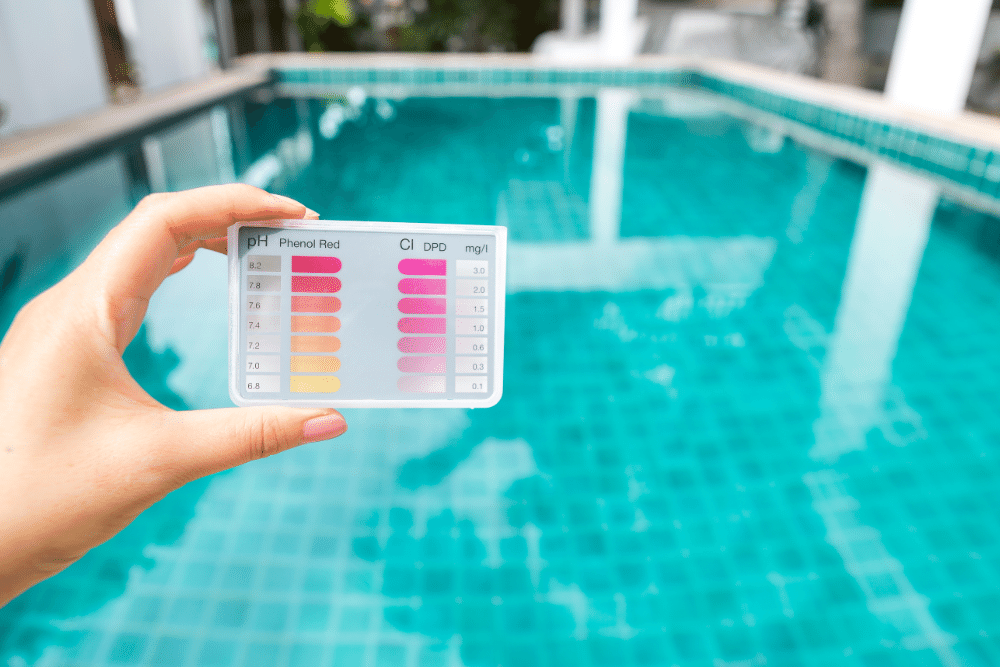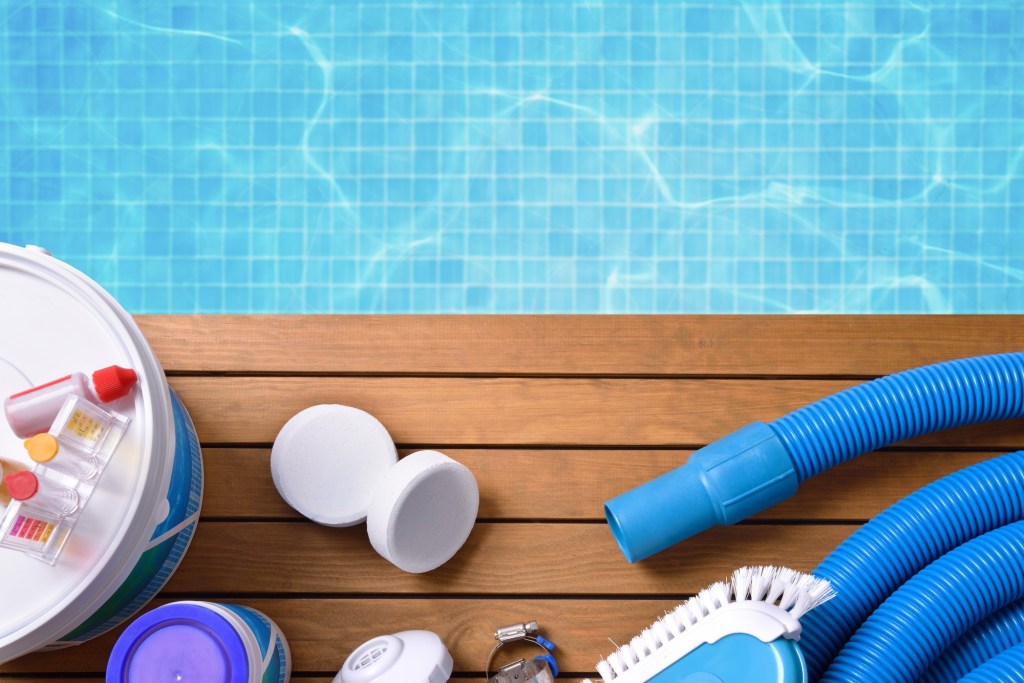

Maintaining the perfect swimming pool water chemistry is essential for a clean, safe, and enjoyable swimming experience. Imagine crystal-clear water, inviting you to a refreshing dip on a hot summer day; a scene often ruined by cloudy or discolored water caused by imbalanced chemistry. Swimming pool water chemistry refers to the precise balance of chemicals like pH, alkalinity, and sanitizer levels necessary for healthy and safe swimming. Many pool owners face issues with maintaining these levels, often leading to problems like algae growth, irritation, and decreased pool longevity. This comprehensive guide will walk you through the essential steps to maintaining perfect pool water chemistry, ensuring your pool remains a vibrant and healthy part of your lifestyle. We will cover crucial topics, from testing to adjusting pool water and handling pool chemicals safely.
Understanding Swimming Pool Water Chemistry
The Importance of Balance
Maintaining a balanced chemical composition in your swimming pool water is crucial for several reasons. A properly balanced chemical environment ensures safety, prevents the growth of harmful algae, keeps the water crystal-clear, and protects your pool equipment from damage. A properly balanced pool is a healthy pool, and this translates to less maintenance work in the long run. Maintaining this balance necessitates regular testing and adjustments to achieve the ideal levels of sanitizer, alkalinity, and pH. With correct balances, you can keep your swimming pool in pristine condition.
Identifying Common Problems
Unbalanced pool water chemistry can manifest in several ways, ranging from unpleasant odors to the growth of algae. Cloudy or discolored water is a telltale sign of an imbalance in alkalinity or pH levels. Other indicators include the presence of scale or corrosion on pool surfaces or equipment. Imbalance can also contribute to skin irritation and eye discomfort for swimmers, potentially making your pool unusable.
Testing Your Swimming Pool Water
Regular Testing Schedule
Regular pool water testing is the foundation of successful pool maintenance. The frequency of testing depends on factors such as pool use, weather conditions, and local water characteristics. However, many experts recommend testing your water at least twice a week, especially after heavy rainfall or heavy use. A regular schedule ensures prompt identification of any imbalances and allows for timely adjustments to prevent serious issues.
Choosing the Right Testing Methods
Several methods are available for testing pool water. For beginners, a test kit can offer an affordable and accessible approach to determining the chemical levels in your pool water. These kits include test strips, reagents, or color-matching charts that aid in measuring essential parameters like pH, alkalinity, and sanitizer levels. More advanced users may opt for digital testers that provide precise and automated readings. Regardless of your choice, adhere to the manufacturer’s instructions to obtain accurate results.
Adjusting Pool Water Chemistry
Identifying Chemical Imbalances
After testing, the results will indicate specific areas that need adjustments. The levels of key chemicals, like pH, alkalinity, and sanitizer, must fall within a specific range to ensure the pool is safe and healthy for use. The test results will pinpoint precisely which chemicals need attention. If the readings are outside the recommended range, you’ll need to adjust the pool water chemistry accordingly, ensuring optimal safety for swimmers and longevity of the pool. The proper use of pool chemicals is key to a properly balanced pool.
Implementing Adjustments
Adjusting pool water chemistry involves carefully adding or removing specific chemicals to restore the proper balance. Always use approved pool chemicals and follow manufacturer instructions. Add chemicals slowly and mix thoroughly to prevent streaks or uneven distribution in the pool water. Incorrect application of pool chemicals can cause harm to the pool and its occupants. Avoid sudden large adjustments and perform checks frequently to ensure the correct balance and prevent issues.
Preventing Algae Growth
Maintaining Proper Sanitizer Levels
Maintaining consistent sanitizer levels, whether chlorine or bromine, is vital in preventing algae growth. Algae thrive in stagnant or poorly treated water. Insufficient sanitizer levels provide algae with the perfect environment for growth. Maintaining a proper amount of sanitizer prevents this.
Ensuring Proper Filtration
A properly functioning pool filter is essential in preventing the growth of algae. Regular maintenance of the pool filter, including cleaning and backwashing, ensures that it continues to remove debris and impurities from the water that could promote algae growth. This is a key part of preventative maintenance for algae issues.
Maintaining Pool Equipment
Regular Cleaning and Maintenance
Regular cleaning and maintenance of pool equipment like filters and pumps are crucial for maintaining pool water quality. Clogged filters lead to reduced water circulation, allowing impurities to accumulate. Cleaning and maintaining these elements ensures the smooth operation of these systems. Regular filter maintenance is crucial for optimal performance and prevents potential issues.
Avoiding Overcrowding
Avoid overcrowding your pool; it could lead to higher chemical consumption and strain your pool’s equipment. This impacts pool water quality and negatively affects all pool components. Balancing the number of swimmers with the pool’s volume and size is vital in preserving the pool’s health and longevity.
Ensuring Pool Safety
Proper Chemical Storage
Store pool chemicals safely and separately from food and other household items. Ensure children and pets cannot access these chemicals, as they can be harmful if ingested. Follow all safety instructions when handling these materials. Proper storage of chemicals will prevent hazards and potential injury.
Eye and Skin Protection
Always wear appropriate eye protection and protective clothing when handling pool chemicals. Follow all safety instructions regarding chemical application, as these steps will minimize the risk of skin irritation or eye damage. By following instructions properly, you can avoid the negative effects from improper application of chemicals.
Seeking Professional Help
Hiring a Pool Service Professional
For complex issues, maintaining a balanced and clean pool can be challenging. Contacting a pool service professional can help optimize your pool chemistry and provide professional advice to identify and address any persistent problems. They can conduct thorough inspections and offer recommendations tailored to your specific pool needs and maintenance. A professional can help maintain the balance and prevent issues.
Automating the Process
Consider investing in automated pool testing and balancing systems. These systems can continuously monitor water quality and automatically adjust chemicals as needed, saving you time and effort and maintaining the proper balance.
Additional Considerations
Understanding Local Regulations
Be aware of any local regulations regarding pool maintenance and water quality. Complying with these regulations is crucial to avoid penalties or issues. These will minimize any issues in your local area.
Seasonal Changes
Adjust your pool maintenance routine depending on the season and weather. Increased usage or fluctuating water temperatures necessitate more frequent testing and adjustments during peak seasons. Following the weather conditions will help you maintain a balance.
Conclusion for maintaining the perfect swimming pool water chemistry
Proper pool water chemistry management ensures your pool is safe and enjoyable for swimmers. Consistent monitoring and adjustment are key to maintaining water quality and protecting your investment. By understanding the importance of maintaining the proper balance and following these steps, you can ensure that your pool remains clean, clear, and in excellent condition for many years to come. For a healthy and sparkling pool, contact a professional for advice and assistance. With the right approach, you can easily enjoy your pool all year round.
Next Steps
Begin by scheduling regular pool water tests. Invest in a reliable testing kit, or seek assistance from a pool service professional. Ensure that your pool chemicals are stored safely and follow all safety guidelines.
Frequently Asked Questions
How often should I test my swimming pool water?
Regular water testing is essential for maintaining proper swimming pool water chemistry. Ideally, test your water at least twice a week, more often if you notice any changes in the water’s appearance or feel. This ensures the pool water remains balanced and healthy for use and protects the pool equipment. Testing frequency can be adjusted depending on factors like weather conditions and pool use. For example, if you have a pool that’s heavily used, you may need to test it more often.
What are the common problems associated with improper pool water chemistry?
Improper pool water chemistry can lead to a variety of problems, including cloudy or hazy water, unpleasant odors, and the growth of algae or other microorganisms. These problems are not only visually unappealing but also pose health risks. Inadequate water balance can also corrode pool equipment, affecting its lifespan and efficiency. Unbalanced water leads to a rise in bacteria growth, which necessitates more rigorous cleaning.
Maintaining the perfect swimming pool water chemistry is crucial for a clean, safe, and enjoyable swimming experience. By consistently monitoring and adjusting your pool’s chemical balance, you can prevent algae growth, maintain healthy water clarity, and minimize the risk of skin and eye irritation. Remember to always follow manufacturer instructions and local regulations when handling pool chemicals. Consider investing in automated pool testing and balancing systems to simplify your routine and ensure consistent water quality. For expert advice and customized solutions, contact a local pool service professional for a free consultation. This will ensure your pool water is always in tip-top shape.